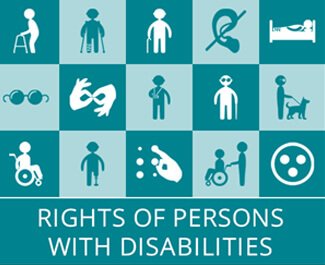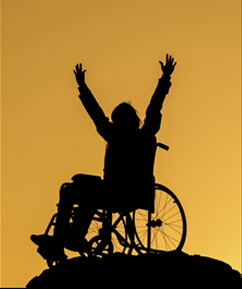Understanding the Rights of Persons with Disabilities Act, 2016
July 6, 2022 | Contributed by Zeeshan Adil
The Rights of Persons with Disabilities Act was enacted in 2016 and the act fulfills its promises of the United Nations Convention on the rights of persons with disabilities, which India became a signatory to in the year 2007.

This new Act replaced the Persons with Disability Act, 1995. It broadens the types of disabilities from seven up to twenty-one. Corporate donations to non-profits in India help in serving persons affected by these disabilities.
The following types of disabilities are mentioned in this Act:
- Blindness
- Low-vision
- Leprosy cured persons
- Hearing impairment
- Locomotor Disability
- Dwarfism
- Intellectual Disability
- Mental Illness
- Autism Spectrum Disorder
- Cerebral Palsy
- Muscular Dystrophy
- Chronic Neurological Disorder
- Specific Learning Disabilities
- Multiple Sclerosis
- Speech and Language disability
- Thalassemia
- Hemophilia
- Sickle Cell disease
- Multiple Disabilities including deaf blindness
- Acid Attack victim
- Parkinson’s disease
One of the important things to note here, is that Heart ailments are not considered as a disability as defined under 2(i) of the Act, that was stated by the Supreme Court in 2021. This means people with heart conditions do not have the rights, as enjoyed by the people who are considered disable as per the act. In most countries, for example like the USA, heart ailments are considered as a disability. Nonetheless, CSR support for children in India has helped provide for such families in need.
Features of the Act

- It is the responsibility of the government that persons with disabilities enjoy equal rights as anyone in the country and are not discriminated against for their disability.
- Public funded education institutions are required to make education more accessible, by providing necessary infrastructure, transportation, and specialized teachers as per the needs of the children and to provide books free of cost to people with benchmark disability up to the age of 18 years.
- Section 31 of the Act declares that children aged between 6-18 have the right to free education in neighborhood school or in a special school of their choice.
- Under section 7(2) of the Act, any person or organization that believes violence or exploitation has been committed or shall commit against a person with disability may give information to the local executive magistrate.
- Persons with disability must get at least 3% reservation in higher educational institutes, government jobs.
- The private sector also has certain responsibilities towards the disable person, such as follows:
-Frame equal opportunities
-Appoint a liason office
-Prohibit Discrimination
-Additional Benefits
-Accessibility
-Maintenance of records - The chief commissioner for persons with disabilities and the State Commissioners will act as regulatory and redressal bodies.
- Breach of the provision of the Act would amount up to Rs 10,000 and Rs 50,000 which could be extended to Rs 500,000 for further breach.
- The Act also grants guardianship by District court under which there will be joint decision-making between the guardian and persons with disability.
- National and State funds will be created to provide financial support to people with disabilities.
- Special courts will be designated in each district to deal with cases violating the rights of the persons with disabilities.
The Act has helped to make a difference in our society and in doing away with the taboos associated with people with disabilities. Collectively, we need to stop seeing them as an object of sympathy or pity. This Act helps in empowering them, in inclusivity and ensuring they are able to contribute to the society in the best way possible.

